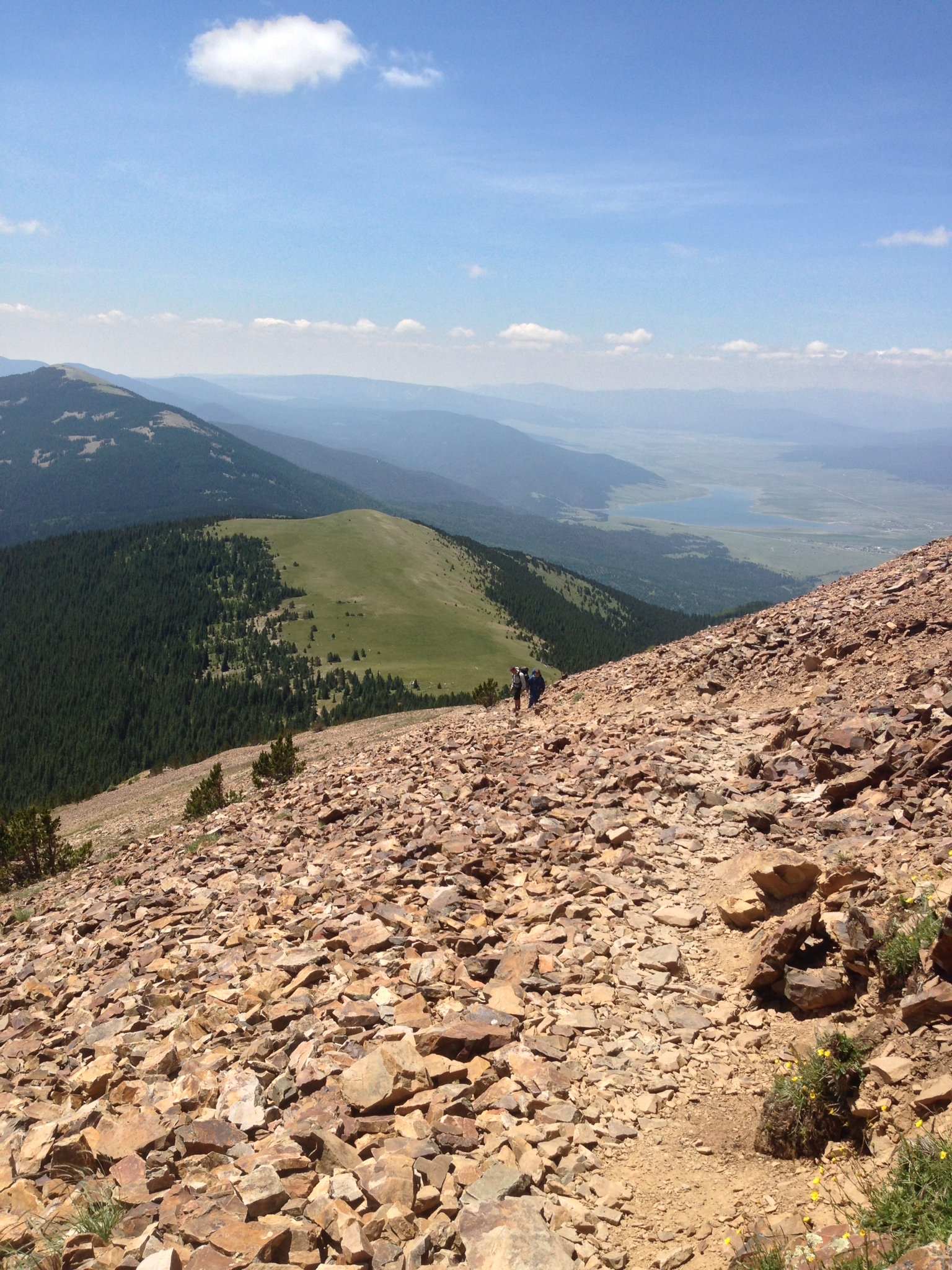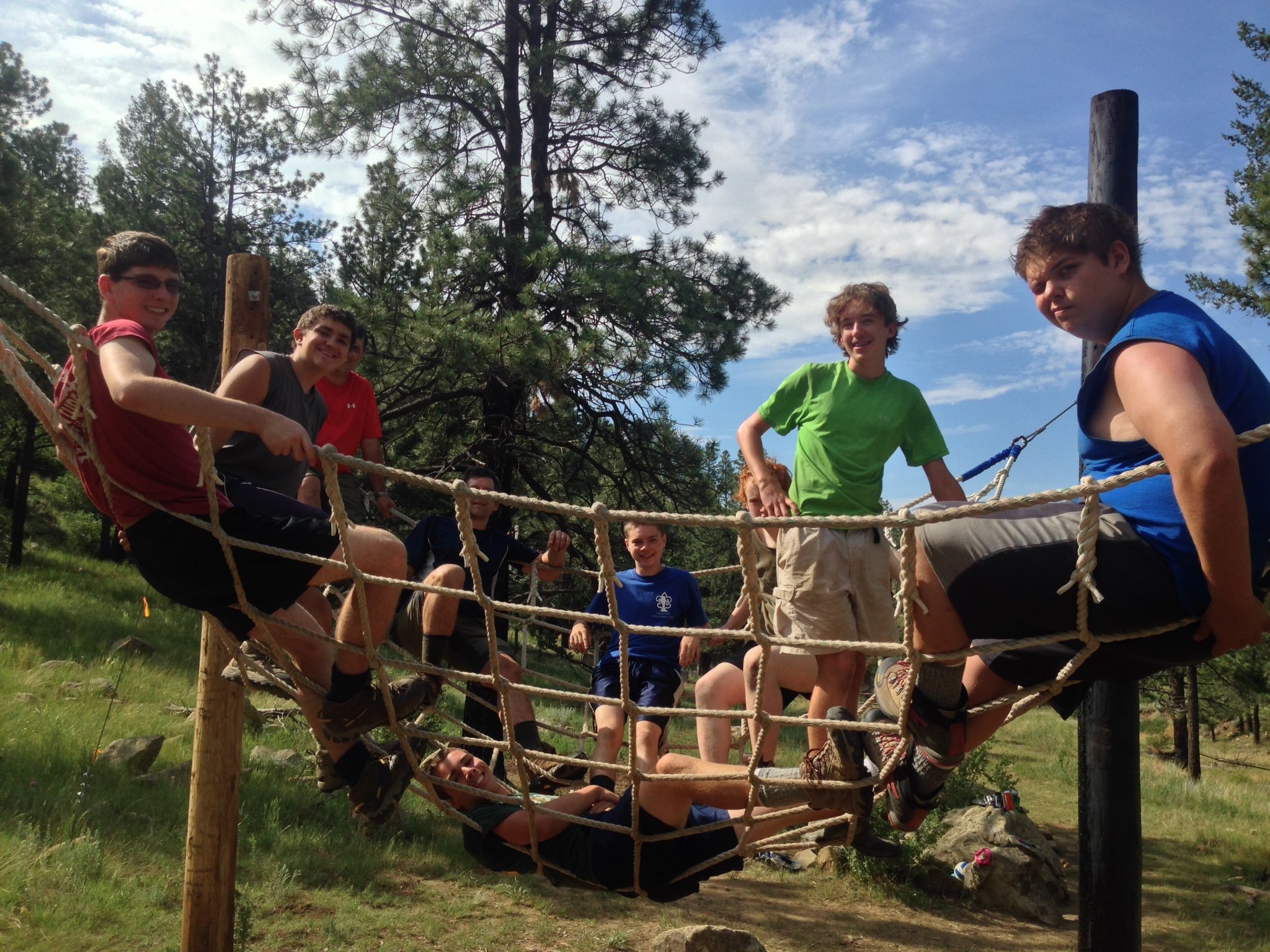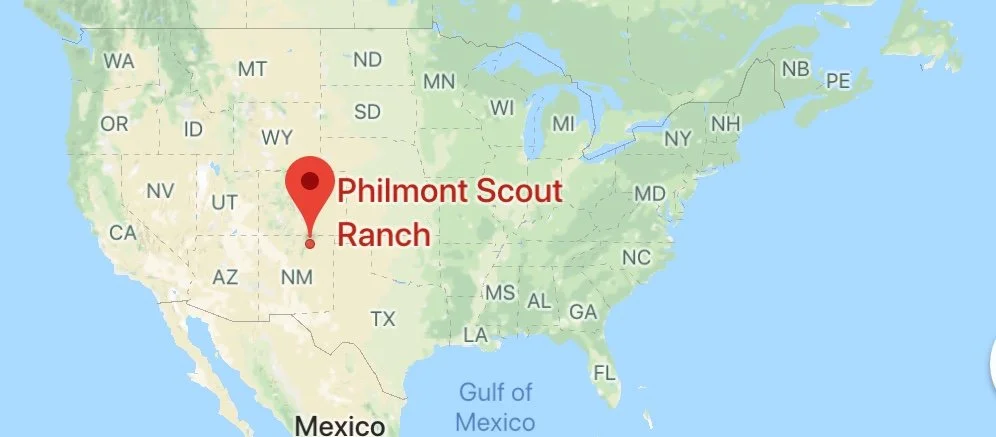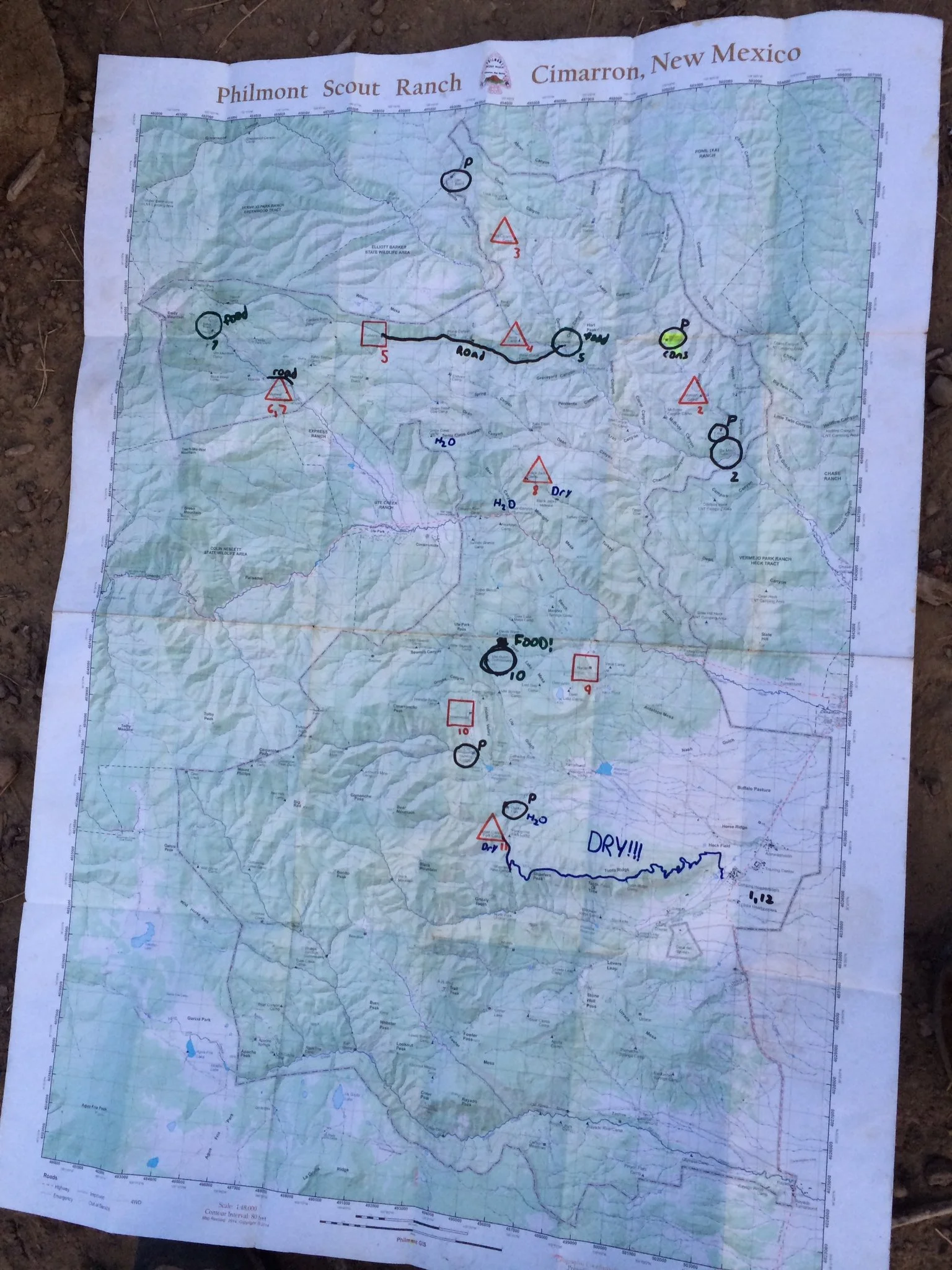Three Things to Remember While Backpacking in the Mountains
One of the most beautiful and challenging hiking spots in the United States is at Philmont Scout Ranch in New Mexico. The ranch is in the southwest corner of the United States and covers over 140,000 acres of rugged mountains and deserts!
If you want to hike here, you have to be prepared to be challenged physically, emotionally, and mentally. I know first-hand, as I spent almost two weeks hiking with a pack (backpacking) and covered almost 160 kilometers of trails. With over 500 kilometers of trails, it was one of the largest camping ranches in the United States! My group, (which had seven teenaged boys between the ages of 15-18 and two adults who were both around 50 years old), got to hike almost 16 kilometers a day and do a bunch of cool activities.




We did rock rappelling, obstacle courses, blacksmithing, shotgun shooting, and built a small portion of a railroad, just to name a few. It was the most challenging, yet rewarding two-weeks of my life, and I learned a few lessons along the way.
The first, and probably most important lesson, is to drink lots and lots of water! In fact, the ranch recommends you drink around 4 to 6 liters a day—minimum. You have to carry at least three one-liter water bottles and fill them up as much as possible. It’s not unusual for the temperatures to get up to around 32 or 36 Degrees Celsius. To make matters worse, the air and ground are very dry, so it is easy to get dehydrated (it’s when you don’t have enough water and you feel dizzy, have muscle cramps, or get a fever—I promise you, it’s not fun!). A good rule of thumb is that even if you think you are drinking enough water, you should always drink more. The temperature is so hot, and you sweat much faster than usual, so your body does not realize you need water until it is too late.
The second lesson I learned, which is (almost) as important as drinking water, is that you have to put your differences aside and work together with your group. We were all very different people with different interests and personalities. But if you are going to have fun and make it out safely, you have to work together. Every day you hike to a camp site and set everything up—tents, portable cooking stoves, and most importantly, the bear bag. The bear bag contains scented items (toothpaste, deodorant, bug spray, food items, etc.) that could attract hungry bears (hungry bears are not very nice). It has to be hung from a tree branch with a rope at least thirty meters from the campsite and at least 6 meters in the air. To get all the tasks done as quickly as possible, we divide and conquer! Some of us cook, some set-up tents, and the rest set-up the bear bag. Each task is very important, and each person has to be responsible and complete their task. But since we are human, this doesn’t always happen. After hiking all day, we were exhausted and just wanted to relax, but everything has to be set-up before dark. In some cases, you would go off and do your task, but then come back to find out someone did not do their job. The worst feeling is working as fast as possible to put up the tents or bear bag, then coming back to find out your friends didn’t start cooking dinner yet (after hiking all day, all you can think about is food). But you have to be able to communicate with them and explain that you worked as fast and efficiently as possible to get done, so it’s expected that they do the same! Getting mad and yelling won’t solve much (trust me, we tried) because they’ll just get defensive; you have to talk to them nicely and explain where you are coming from (which was very hungry)!



Communication is not just important for setting-up camp and other necessary tasks, but also for encouraging your friends to keep on going. This was true on almost every hike we were on but was especially true when we were climbing up Mt. Baldy, which is the tallest at the ranch with a peak of about 4,382 meters, and a slope of 72-degrees. As you can imagine, it was a very challenging climb up to the top. About half-way up, we were all tired, but my one friend wanted to give up. He was yelling that he couldn’t do it and wanted to turn around. We just had to tell him that we were all tired and exhausted, that he would almost certainly regret it if he didn’t make it to the top, and that we would go at his pace and keep on encouraging him along the way. After some back-and-forth arguing, he finally gave-in and kept on going. Although it was a long and slow process, let’s just say he was thankful that we pushed him once he got to the top and saw the stunning view. There was hardly a cloud in the sky and you could see for kilometers in every direction; it was truly breath taking.
The third lesson I learned, which a surprising amount of people forget to do, is to just have fun and enjoy the moment. People will get so caught up in just getting to the next campsite that they won’t take the time to look around and enjoy the beautiful scenery. Although it is important to keep on moving, you should be looking around and enjoying the diverse and rugged terrain. I’ve never seen such a great combination of mountains, deserts, and forests since my trip, but I am sure glad I was living in the moment and enjoying every second of the hike!



Backpacking is great because it takes you out of your comfort zone (you have no technology—as you know some people think that they would die without their cell phone—or luxury items; only the clothes you are wearing, the few necessary and lightweight items in your pack, and your group mates) and puts into a challenging situation where have to trust and rely on both yourself and your friends. These challenges can boost your self-confidence and create some lifelong friendships. If you are up for the challenge, give it a try, it may change your life—or just show you how hungry we were after each hike!
Vocabulary
Backpacking - form of hiking where you carry all of your items (tents, clothes, toiletry, etc.) in a pack on your back
Scenery - the natural features of the landscape in terms of their appearance, especially when they are beautiful
Rugged - rocky or uneven landscape
Mountain - A large and abrupt natural elevation of the earth’s surface
Rock Rappelling - The process of coming down a steep mountain wall using two pieces of rope with a natural anchor
Obstacle Courses - A series of difficult challenges (usually physical, but some can be knowledge) that one must negotiate in order to achieve a particular aim (such as beating another team)
Blacksmithing - The process of creating metal or iron tools by cutting, heating, and hammering pieces of iron or steel
To make matters worse - making a bad/tough situation even harder
Rule of thumb - a broadly accepted guide to a situation that is based on practice
To put your differences aside - to forget or ignore feelings of disagreement in order to focus on a common problem
Fit - in good health
Bear Bags - A bag that holds items that may be attractive to a bear and tied to a tree branch using a rope—out of reach of a bear
About the author
Philip Kopatz is a senior at Walsh University from Ohio, United States. He is majoring in history and psychology and plans on attending graduate school and eventually becoming a history professor. At Walsh he is active in student government and is a professional writing tutor. When he has free time, he enjoys hiking, biking, reading, and traveling.
CHECK OUT UPCOMING EVENTS




